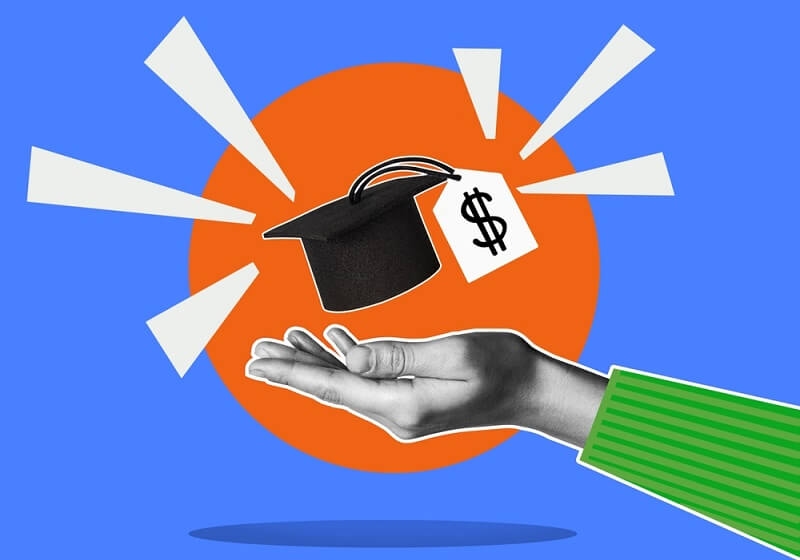
College is not just about your academic growth; it's your first real step into adult commitments. Among the most critical skills you are going to need is financial literacy. If you can learn how to think about money early, you can inform your financial future and help you think about solving the problems that many students have: debt and poor spending habits.
In this guide, you will discover financial literacy tips that every college student should learn early, from student finance basics in the USA to college budgeting tips, personal finance apps for students, and how to manage student loans.
Most students go to college and often do so without basic financial knowledge. This can lead to a lot of the common mistakes made by students, which include
Building these smart money habits now will help students avoid financial stress and prepare for a lifetime of economic well-being.
Before you get fully in control of your money, you need to understand the basic principles. Financial literacy for students covers:
These fundamental principles build the framework for everything else. Without understanding the basic principles, you will make more mistakes that could take a long time to fix.
Budgeting isn't about limiting your life—it's about giving your money direction. College is a time of variable income and high expenses, so a solid budget is crucial.
To make budgeting easier and more effective, use tools like spreadsheets or personal finance apps for students, such as Mint, YNAB (You Need A Budget), or PocketGuard.

Most banks offer special accounts for students with no monthly fees and lower minimum balance requirements. Look for features like
Having a separate account for personal and educational expenses is a good, smart money habit that makes tracking and managing money easier.
Credit cards can be a tool, not just a temptation. Used wisely, they help build credit history, crucial for renting apartments, buying cars, and sometimes even job applications.
Financial literacy tips every college student should learn early include understanding your credit score and how to build it responsibly.
Student loans are often necessary but can also be burdensome if mismanaged.
How to manage student loans is not just about paying back debt—it's about making informed decisions before you even borrow.
Even small savings can build powerful habits and a safety net for emergencies.
Create an emergency fund—even if it’s just $5–10 weekly. Over time, it adds up and keeps you from going into credit card debt for minor surprises.
Many students don't take full advantage of the financial aid available to them. Financial literacy also means knowing where and how to get help.
Knowledge is power. Understanding your options helps you reduce borrowing and manage funds more effectively.
Technology makes it easier than ever to stay on top of your money. There are plenty of personal finance apps for students that simplify budgeting, saving, and tracking spending.
These apps help you develop smart money habits and stay financially disciplined, even with a student’s busy schedule.
You may think retirement planning is years away, but time is your biggest asset. Compounding interest works if you save even a small amount during college.
Even saving $20 a month makes a difference when it’s consistent.
Even the most well-intentioned students can fall into money traps. Avoid these common pitfalls:
Financial literacy means learning from others’ mistakes before you make your own.
Learning how to advocate for yourself financially can save you hundreds of dollars, whether you ask for a better phone plan, negotiate a rent price, or inquire about student discounts.
Being financially literate also means knowing your rights and how to use them.
You'll likely need to file taxes if you work part-time or freelance while in college.
Understanding taxes now helps you avoid penalties later and can even put money back in your pocket.
Financial literacy is a life skill that every college student should learn early on, and mastering these tips isn't just a checklist; it's for life. From student finance basics in the USA to managing your student loans, budgeting, and using personal finance apps for students, every smart habit you build today will pay dividends in your future.
If you live on or off campus, have an income, or rely on your financial aid, the understanding and decisions you make today will impact you for years to come. Don’t wait until after graduation to learn how money works and be the ahead-of-the-curve student.
Because the smartest degree you can earn is not just academic; it’s financial.
This content was created by AI